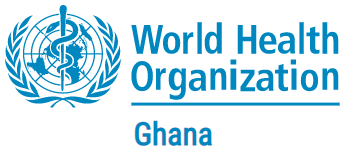Diana Adom*, 54, was diagnosed with schizophrenia eight years ago, a mental health condition that devastated her life before she finally got the care she needed, including the medication that set her on the path to recovery.
“I was hearing voices of people telling me hurtful things. I became hostile and my relationship with society changed, leading to the collapse of my marriage,” recalls Adom, from who lives in Konongo, a town in Ghana’s central Ashanti region. Living in an environment of widespread stigma and abuse from family and community members, it was especially painful that her two children were not spared.
“It was difficult for me to even come out of the room as people hurled insults at me. My children were mocked and called ‘children of a mad woman’,” she says.
Adom sought out health services as her condition worsened. After being diagnosed, she started treatment immediately.
She credits the mental health workers at the Konongo Odumasi Government Hospital in her hometown for helping change her life, thanks to the Ghana government’s continued drive to improve mental health service delivery.
Obed Amoakwah, the district focal person in charge of mental health, has been providing long-term care to Adom. He says that while it took time to build trust with her, she now “comes to us regularly for her medication”. Adom receives monthly antipsychotics, as well as psychosocial therapy for herself and her family.
More than 2.4 million people in Ghana are estimated to be living with various mental health conditions, 98% of them still lacking access to medication and to qualified service providers. The inadequacy of treatment, together with the associated stigma, means people like Adom often turn to spiritual healers, or shy away from any help whatsoever.
Among its efforts to improve mental health service delivery, the government of Ghana developed the country’s National Mental Health Policy 2019–2030. The policy aims to decentralize mental health care services by integrating them into primary health care.
Through government and donor support, the goal is to provide quality mental health services to anyone in need, in any part of the country, including people who are vulnerable or cannot afford care. The policy also guides the training and regulation of operations of mental health service providers, and facilities.
“We continue to explore all avenues to ensure that we strengthen our mental health service system into one that responds fully to the needs of clients,” says Dr Amma Boadu, Deputy Director for Mental Health at the Ghana Health Service.
World Health Organization (WHO) support for these efforts has been both technical and financial. In 2021, Ghana was selected to be part of the WHO Director General’s Special Initiative for Mental Health, to support health system transformation and scaling up of mental health services. It is one of nine countries worldwide and the second in Africa to be part of this initiative.
In Ghana, the initiative aims to ensure access to integrated, quality, people-centred mental health care for an additional 5.2 million people. It is already helping improve the country’s mental health policy by establishing a coordinating mechanism among civil society organizations, people living with mental health conditions, agencies that provide mental health services and other partners. The country is also scaling up quality service provision at primary health care level, through the training of clinicians to detect, diagnose and treat mental health disorders early.
Together with the United Kingdom’s Department of Health and Social Care, WHO has also supported Ghana to enhance the mental health and psychosocial support skills of 394 personnel, to strengthen available support systems in schools, at health facilities and in communities.
“WHO is happy to be working with the government to address mental health service delivery to advance our shared commitment of promoting mental health as a universal human right,” says Dr Francis Kasolo, WHO Representative to Ghana.
The ongoing measures complement the QualityRights Initiative, launched in 2019 to improve quality of care and promote the rights of people living with mental health conditions through virtual and in-person training of mental health care staff. This has equipped mental health care workers to provide services respectfully, by upholding the rights and dignity of clients.
Amoakwah notes that these measures have resulted in improved service provision for an additional 1.7 million people with mental health conditions. “I believe that the trainings we are receiving, including the e-learning course on QualityRights, have contributed to the trust we have built with clients like Adom, motivating them to return regularly to our clinics,” he says.
*Name changed to protect identity
Distributed by APO Group on behalf of World Health Organization (WHO), Ghana.
Latest Stories
-
Betway Africa offers a once-in-a-lifetime ‘Play-on-the-Pitch’ experience at Emirates Stadium
28 mins -
School Feeding Programme: Bono East NIB seizes smuggled rice, arrest driver
50 mins -
Dr. Razak Opoku: Despite challenges, facts and data still prove NPP is better manager of the economy than NDC
57 mins -
Seidu Agongo: On December 7, it must be peace over power
1 hour -
2024 Election will take place on December 7; ignore misleading claims – EC
1 hour -
GPL 2024/25: Asante Kotoko bounce back with win over Aduana FC
2 hours -
GPL 2024/25: Gold Stars beat Vision FC to retain top spot
2 hours -
Ebo Whyte returns with ‘The 4Play’
3 hours -
2024/25 Ghana League: Heart of Lions sink Legon Cities to go third
3 hours -
Bright Simons: DBG, Ghana’s top development bank, goes for the jugular
4 hours -
Governance and Entrepreneurship consultant demands global support for Africa’s young farmers
4 hours -
Ghanaians reminded to prioritise regular health check-ups
4 hours -
Salah brace sends Liverpool 8 points clear
4 hours -
Leicester City sack manager Steve Cooper
4 hours -
Akwasi Sarpong wins AIBs 2024 Award for BBC OS coverage of Israeli hostage release
4 hours

